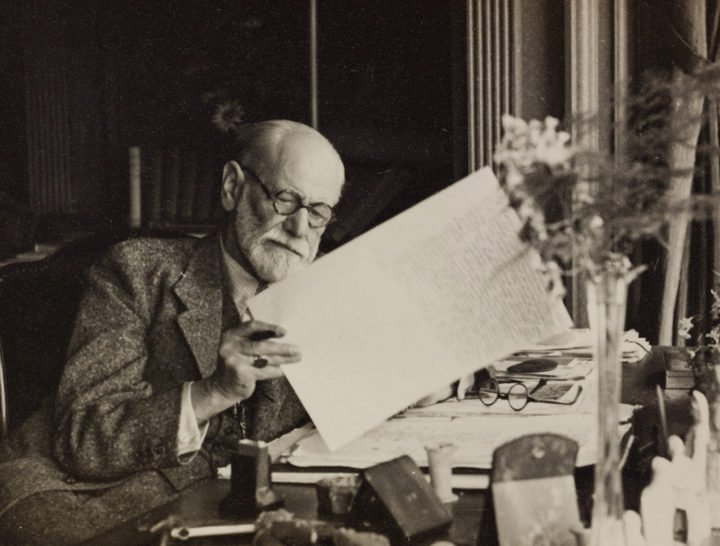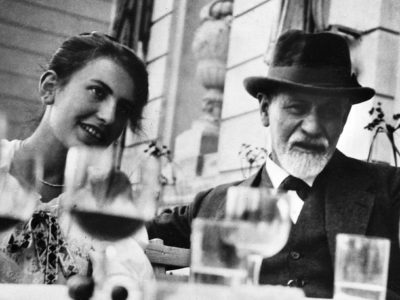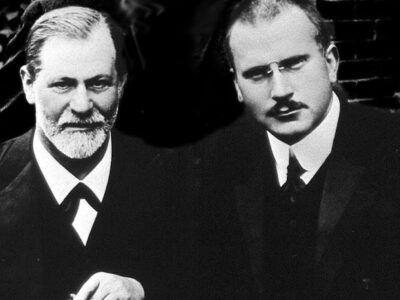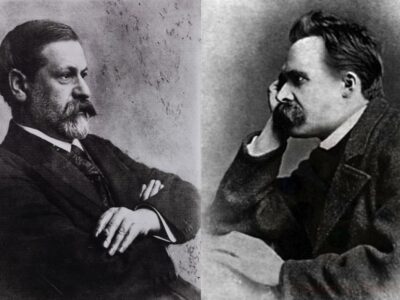
- This event has passed.

This course will take place on 18th and 19th November 2021 for 3 hours each day. The time listed includes a tea break. Booking admits all attendees to the livestream and access to the recording for 1 month. Registrants will receive the reading material 1 day before the course.
The course will review all Freud’s major writings about the aims and principles of psychoanalytic psychotherapy, and follow the stages in his development as a psychotherapist as he worked, over more than twenty years, to formulate the fundamental principles of his new treatment for the neuroses. Freud’s major case histories are examples of supremely great writing, and we will examine two of them in detail; ‘Dora’, ‘The Rat Man’. In these brilliant essays, Freud puts himself on display both as a clinician and as a theorist, and the fact that he was honest enough to describe his failures as well as his successes, ensures their enduring value for us today. In the final session of the course, we will review the main developments in the theory and practice of psychoanalytic psychotherapy since Freud, and examine the latest thinking – by psychotherapists and philosophers – on the nature of the change psychoanalysis aims to bring about, the key factors that make such change possible. We will also address the question of the limitations of the psychoanalytic approach to psychotherapy.
Session 1: Freud made his debut as a psychotherapist using hypnotic suggestion to attempt to remove hysterical symptoms. We will trace the evolution of his clinical practice as he gave up the use of hypnosis, substituting for it the ‘pressure technique’, which in turn gave way to the rule of ‘free association’. Freud later described this as the ‘Fundamental Rule of Psychoanalysis’ and the discovery of ‘free association’ led to the first change in the focus of the treatment: from psychoanalysis as the analysis of symptoms to psychoanalysis as the analysis of dreams.
Session 2: In the Dora case we see both these early stages in the early development of Freud’s therapeutic practice: (1) the analysis of symptoms; and (2) the analysis of dreams; and the case history is centred on the analysis of two dreams. Yet Freud tells us that the treatment failed because he ‘failed to master the transference in good time’, and it was this case which led him to recognise the central importance of transference in psychoanalytic treatment. Dora’s unexpected decision to end her treatment abruptly after only three months – which clearly stung Freud – taught him that psychoanalysis must be, first and foremost (3) the analysis of transference. Nevertheless, despite his failure to bring the case to a successful conclusion, his understanding of the dynamics of the patient’s family, and his appreciation (finally attained right at the end of the treatment) of her dilemma, are of great depth and subtlety, and render the story of her treatment alive for us today. The Dora case has become a feminist classic and we will review the feminist critique of Freud’s behaviour towards his patient, and feminist interpretations of its significance.
Session 3: Freud regarded his analysis of the ‘Rat Man’ as one of his great successes. He is on top of the transference this time, and delighted to demonstrate in his account how his handling of it contributed to the success of the treatment. He also sets out in full, in the case history, his understanding of obsessional neurosis. Where hysteria revolves around repression of sexuality, his analysis of obsessional neurosis focusses on repressed hatred and destructiveness. And since these emotions and impulses are felt towards those whom the patient loves, guilt is a major factor, and the problems of ambivalence dominate the picture. In this session we will also study Freud’s ‘Papers on Technique’ written between 1911 and 1915, when he had twenty years’ experience as a psychotherapist. He had formulated the rule of ‘free association’ – the fundamental rule of psychoanalysis for the analysand – in the 1890’s, now he formulated the rule of ‘evenly suspended attention’ – the fundamental rule of psychoanalysis for the analyst – and explained the necessity for the analyst to have undergone the process of analysis him or herself.
Session 4: In the final session we will put the two rules together, and ask the question: what happens in the consulting room when the analysis and the analyst both obey the rules Freud laid down for them? We will also review the main developments in the theory and practice of psychoanalytic psychotherapy since Freud, and examine the latest thinking – by psychotherapists and philosophers – on the nature of the change psychoanalysis aims to bring about, the key factors that make such change possible. We will also address the question of the limitations of the psychoanalytic approach to psychotherapy.
(This is the fourth of five six hour courses offering a complete introduction to Freud. The courses will be accessible to beginners – but are also designed for those already familiar with Freud’s work who wish to acquaint themselves with the results of the latest research and scholarship bearing upon it, and up-date themselves on the recent debates addressing the intellectual issues and controversies surrounding it.)






